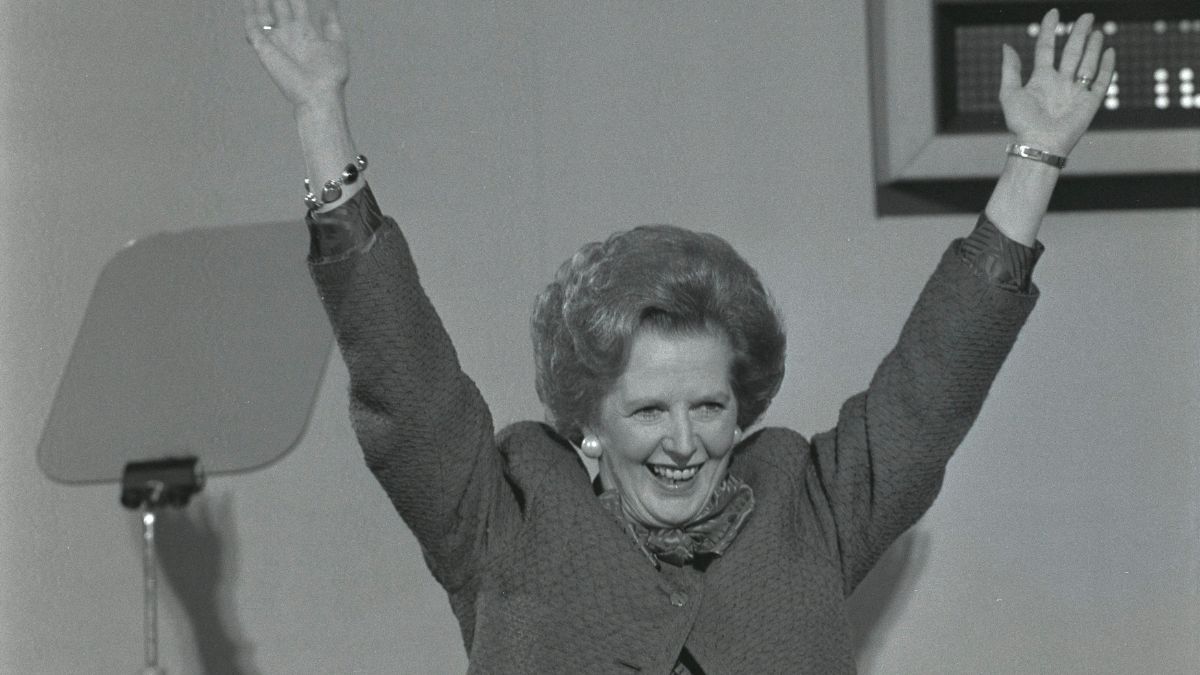On May 4, history when Margaret Thatcher shattered a centuries-old barrier in 1979 by becoming the first woman to serve as Prime Minister of the United Kingdom.
Two decades earlier, in 1959, the music industry celebrated its finest with the inaugural Grammy Awards.
And in 1994, a pivotal agreement between Israel and the Palestine Liberation Organisation laid the groundwork for Palestinian self-rule.
If you are a history geek who loves to learn about important events from the past, Firstpost’s ongoing series, History Today will be your one-stop destination to explore key events.
Margaret Thatcher becomes Europe’s first female PM
On May 4, 1979, Margaret Thatcher was appointed Prime Minister of the United Kingdom, making history as the first woman to hold the office in the UK and Europe.
Her Conservative Party had secured a decisive victory in the general election, winning a 44-seat majority over the incumbent Labour government led by James Callaghan.
Thatcher’s ascent marked a significant shift in British politics, both in terms of gender representation and ideological direction.
Born Margaret Hilda Roberts in 1925 in Grantham, England, Thatcher studied chemistry at Oxford University before training as a barrister.
She entered Parliament in 1959 and rose through the ranks of the Conservative Party, becoming its leader in 1975. Her leadership style was characterised by a strong commitment to free-market policies, individual responsibility, and a reduction in state intervention.
Thatcher’s premiership, which lasted until 1990, was marked by significant economic and social reforms. She implemented policies aimed at deregulating the economy, privatising state-owned industries, and curbing the power of trade unions.
These measures, collectively known as “Thatcherism,” were both lauded for revitalising the British economy and criticised for increasing social inequality.
Internationally, Thatcher played a prominent role on the world stage. She maintained a close relationship with US President Ronald Reagan , sharing a mutual commitment to conservative economic policies and a strong stance against the Soviet Union during the Cold War.
Her leadership during the Falklands War in 1982 further solidified her reputation as a resolute and determined leader.
Thatcher’s tenure was not without controversy. Her introduction of the Community Charge, commonly known as the “poll tax,” led to widespread protests and contributed to a decline in her popularity.
Facing internal party dissent, she resigned in 1990, succeeded by John Major.
Despite the polarising nature of her policies, Thatcher’s impact on British politics is undeniable. She remains a figure of significant historical importance, symbolising both the possibilities and challenges of transformative leadership.
First Grammy Awards presented
On May 4, 1959, the music industry celebrated its achievements with the inaugural Grammy Awards . Organised by the National Academy of Recording Arts and Sciences, the ceremony recognised outstanding musical accomplishments from the previous year.
The event was held simultaneously in two locations: the Beverly Hilton Hotel in Los Angeles and the Park Sheraton Hotel in New York City.
A total of 28 awards were presented, honouring artists across various genres. Notable winners included Ella Fitzgerald, who received awards for Best Female Vocal Performance and Best Jazz Performance and Count Basie, who won for Best Jazz Group Performance and Best Dance Band Performance.
Domenico Modugno’s “Volare” was awarded Record of the Year, highlighting the global influence of music.
Also Watch:
The establishment of the Grammy Awards marked a significant moment in the recognition of musical artistry, setting a precedent for future generations of musicians and industry professionals.
Rabin & Arafat sign accord for Palestinian self-rule
On May 4, 1994, Israeli Prime Minister Yitzhak Rabin and Palestine Liberation Organisation (PLO) Chairman Yasser Arafat signed a historic accord in Cairo, Egypt initiating the first phase of Palestinian self-rule .
The agreement, part of the broader Oslo Accords framework, outlined the withdrawal of Israeli forces from the Gaza Strip and the Jericho area, transferring authority to the newly established Palestinian Authority.
The signing ceremony, attended by international dignitaries, was a culmination of months of negotiations aimed at resolving the longstanding Israeli-Palestinian conflict.
While the accord faced challenges and criticisms from various factions, it represented a significant step toward peace and mutual recognition between the two parties.
The 1994 agreement laid the groundwork for subsequent negotiations and agreements, influencing the trajectory of the region in the years that have followed.
Also Watch:
)